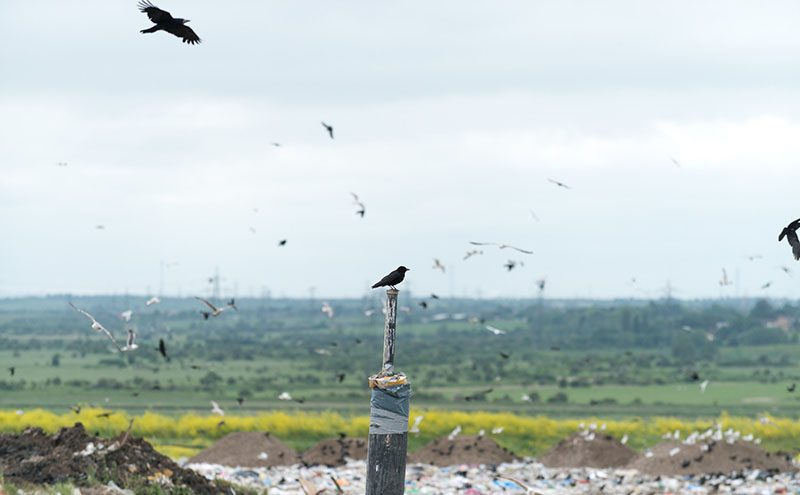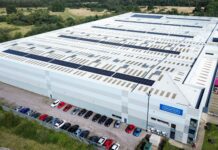
Resource management firm Veolia has released information about its recent stewardship of landfill sites, supporting the claim that “there’s still life left in landfill yet – especially on the surface”. Working alongside specialist partners REG Power Management and Ethical Power, Veolia says it is looking to better utilise its landfill sites and add value, particularly in regards to green energy generation.
One project has the ability to be rolled out across a number of the restored landfills Veolia manages nationally, with planning permission already granted for three, namely: Netley, in Hampshire; Ling Hall in Warwickshire; and Ockendon in Essex.
Once at full capacity, these three sites alone will be capable of generating over 70 megawatts, which is enough to power 185,000 homes* – with Netley producing up to 12 megawatts, Ling Hall also producing up to 12 megawatts and Ockendon, which is a much larger site, producing approximately 46 megawatts. This 70 megawatts will be fed into the National Grid and is enough to power either 2.5 million hot showers, 2.8 million LED TVs or boil the kettle for 84 million cups of tea, each day.
Estelle Brachlianoff, Senior Executive Vice-President for Veolia UK and Ireland, states:
“A primary example of landfill green energy generation is the Netley landfill site in Hampshire, where a solar farm has already been installed that will generate approximately five megawatts and power approximately 13,000 homes, per year*. This came online in spring 2017 and following the success of this site we’re working with our partners to extend the capacity at Netley up to twelve megawatts, while rolling out this project across other landfill sites, including Ling Hall near Rugby and Ockendon in Essex.”
Matt Partridge, Development Director at REG Power Management, adds:
“For over four years, REG Power Management has built a sound business relationship with Veolia and today we remain focused on the delivery of further, commercially robust solar farms at Netley, Ockendon and Ling Hall. This will contribute to both of our aspirations related to landfill after-care management, climate change and the circular economy.”
Stuart Whiteford, Investment Director at Ethical Power, responsible for Netley adds:
“At Ethical Power we continue to be committed to fulfilling our ambition of delivering cost effective clean energy, we have adopted innovative approaches to design and implementation of solar schemes, in particular on less sensitive or productive land, such as landfill. Currently landfill occupies 2,000 hectares in the UK, which is potentially 800MW of solar generation, and of course does not include other brownfield sites, such as industrial and contaminated land.”
Other key sites being reviewed for the suitability for the project are: Pitsea and Rainham landfills in Essex, Wapseys Wood in Buckinghamshire, Albion in Leicestershire as well as several others located throughout Hampshire and the West Midlands.
This project is being run alongside work to improve the biodiversity across numerous landfills with enhancements being undertaken to protect the UK’s precious ecology. Examples include: creating habitat for water vole at Alder Carr in South Yorkshire; the management of habitat for Twites near Oldham; and the preservation of bee orchids in Essex. This is in addition to the planting of wildflower meadows as well as the general planting of trees and shrubs to provide food and shelter for animals large and small, while offsetting CO2, with the aim of protecting local habitats and to help prevent the disappearance of species from local areas.
* – Figures based on the Ofgem benchmark for electricity consumption in an average home






